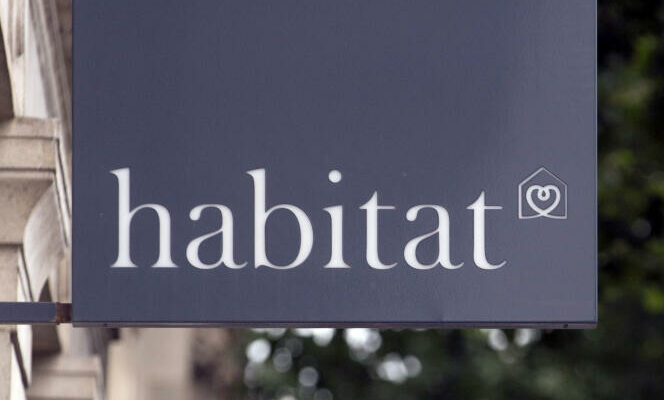On Thursday, December 28, the Bobigny commercial court declared the liquidation of Habitat, without maintaining its activity. This decision leads “the loss of employment for nearly 400 employees, thus plunging them into extreme precariousness”they who “have now been without pay for two months”, indicates the CGT in a press release.
The furniture and decoration sales brand, which had democratized design in French homes, had been placed in receivership since the beginning of December. Its twenty-five stores in France were closed on this occasion. In question: “deep financial difficulties” attributable, according to the company, “to previous failed management and exacerbated by more recent factors” such as inflation, a drop in store traffic and “internal social movements having disrupted activity”. Habitat France (315 employees) generated a turnover of 65 million euros in 2022, and its parent company, Habitat Design International (68 people), had a turnover of 51.8 million euros.
Founded in 1964 by Briton Terence Conran (1931-2020), Habitat had its heyday in the 1980s. Its fall accelerated through changes in ownership. At its head since 1992, the Swedish Kamprad family (also owner of Ikea) sold it in 2009 to Hilco, a British fund. He split the company in two, and sold the French part in 2011 to the Cafom group, a major player in home furnishings through a network of stores overseas, for 4.3 million euros.
But the losses are piling up. And Hervé Giaoui, president of Cafom, ended up throwing in the towel, after closing a few stores and eliminating 20% of the workforce. In 2020, he sold Habitat, which still generates 100 million euros in turnover, after having bailed it out to the tune of 15 million euros.
The entrepreneur-investor Thierry Le Guénic, accustomed to taking over stores or brands in difficulty (San Marina, Chevignon, Cosmoparis, etc.), then took possession of the chain for a symbolic 1 euro in October 2020, before acquiring the same year the clothing brand Burton of London, also placed in receivership in mid-June.
“Nothing left to take back”
The successive owners have not reinvested to develop the brand, nor have they repositioned its offering, focused on the mid-range and caught between Ikea, new players like Maison du monde, and the competition. front-end of the Internet. Shops, from 1,500 to 2,000 m2in the heart of city centers, suffer from excessively high rents and high personnel costs. “Two positions which, combined, absorbed between 40% and 50% of the stores’ turnover”according to a good knowledge of the company.
You have 35% of this article left to read. The rest is reserved for subscribers.
